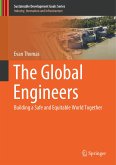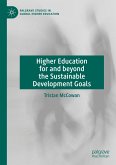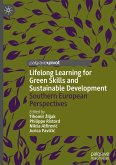The Global Engineers: Building a Safe and Equitable World Together, is inspired by the opportunities for engineers to contribute to global prosperity. This book presents a vision for Global Engineering, and identifies that engineers should be concerned with the unequal and unjust distribution of access to basic services, such as water, sanitation, energy, food, transportation, and shelter. As engineers, we should place an emphasis on identifying the drivers, determinants, and solutions to increasing equitable access to reliable services. Global Engineering envisions a world where everyone has safe water, sanitation, energy, food, shelter, and infrastructure, and can live in health, dignity, and prosperity.
This book seeks to examine the role and ultimately the impact of engineers in global development. Engineers are solutions-oriented people. We enjoy the opportunity to identify a product or need, and design appropriate technical solutions. However, the structural andhistorical barriers to global prosperity requires that Engineers focus more broadly on improving the tools and practice of poverty reduction and that we include health, economics, policy, and governance as relevant expertise with which we are conversant.
Engineers must become activists and advocates, rejecting ahistorical technocratic approaches that suggest poverty can be solved without justice or equity. Engineers must leverage our professional skills and capacity to generate evidence and positive impact toward rectifying inequalities and improving lives.
Half of this book is dedicated to profiles of engineers and other technical professionals who have dedicated their careers to searching for solutions to global development challenges. These stories introduce the reader to the diverse opportunities and challenges in Global Engineering.
This book seeks to examine the role and ultimately the impact of engineers in global development. Engineers are solutions-oriented people. We enjoy the opportunity to identify a product or need, and design appropriate technical solutions. However, the structural andhistorical barriers to global prosperity requires that Engineers focus more broadly on improving the tools and practice of poverty reduction and that we include health, economics, policy, and governance as relevant expertise with which we are conversant.
Engineers must become activists and advocates, rejecting ahistorical technocratic approaches that suggest poverty can be solved without justice or equity. Engineers must leverage our professional skills and capacity to generate evidence and positive impact toward rectifying inequalities and improving lives.
Half of this book is dedicated to profiles of engineers and other technical professionals who have dedicated their careers to searching for solutions to global development challenges. These stories introduce the reader to the diverse opportunities and challenges in Global Engineering.








